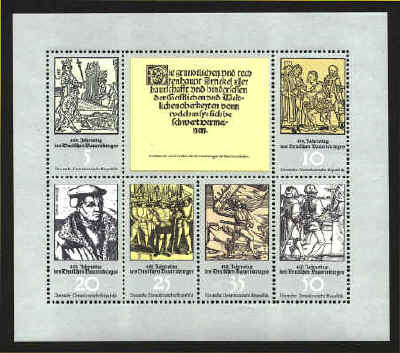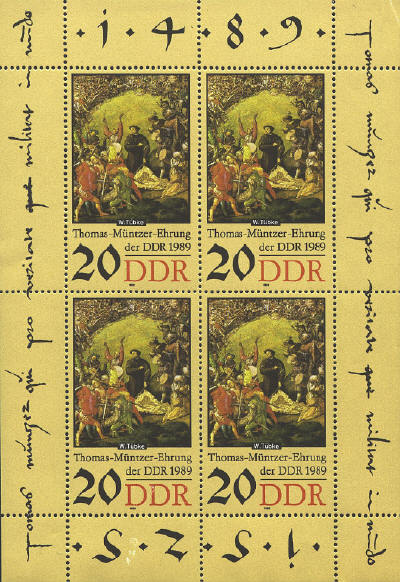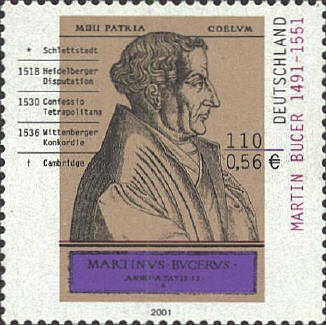|
Desiderius Erasmus
(1469-1536) the Dutch humanist from Rotterdam was an ordained priest.
He created the first printed edition of the Greek text of the New
Testament. He also attacked many of the abuses committed by the
Church. Still, he was unsympathetic to the reformation and attacked
Luther for his position on the freedom of the will.

In December 1521 Luther and
his followers were put under a civil band, which meant they were
outlaws who could be attacked and killed without penalty. By Frebruary
1522 the ban was lifted and Luther was free to return to Wittenberg.
While Luther was in the Wartburg, a number of changes took place in
Wittenberg. Monks began to leave the Augustinian congregation
until it was finally disbanded. The minister at the castle church
married. Students destroyed the altar at the Franciscan monastery. An
Evangelical Lord's Supper began to be celebrated with the liturgy in
German and the cup offered to the laity. While Luther was sympathetic
to many of the changes he was opposed to achieving them through
violence.
Thomas Münzer was an Anabaptist, a social radical of
the Reformation, and a leader of the Peasant’s War in Thuringia. His
religious ideas were based on revelations by the Holy Spirit, visions
and dreams. He denounced the idea of royalty, and preached the
immanence of the Kingdom of God in which all would be equal and hold
everything in common. He was captured in 1525, tortured and forced to
recant his radical ideas before he was executed.

Peasants rose up in
southwest Germany. They cited Luther's teachings as authority and
demanded more just economic conditions. They were ready to overthrow
the authorities if necessary. Luther wrote Admonition to Peace, a
reply to the twelve articles of the Peasants in Swabia, and also
Against the Murderous and Thieving Hordes of Peasants. At the Battle
of Frankenhausen, May 15, 1525, 50,000 peasants were cut down. Before
the uprising was quelled, most of the year's crops, hundreds of
villages, castles and monasteries were destroyed. Nearly 100,000 die.
Protestant ministers were hanged by Catholic princes. The peasants
believed that they had been betrayed by Luther.

The
souvenir sheet displays a series of contemporary woodcuts showing
scenes from the Peasants' War. From upper left to lower right:
Peasants engaged in forced labor; The Title page of the Twelve
Articles which contain the demands of the peasants; a peasant paying
the tithe; Thomas Müntzer; armed peasants; the peasant "Liberty" flag;
a peasant on trial.
The design on the souvenir
sheet is a battle scene from Early Bourgeaus Revolution in Germany
in 1525 by W. Tubhe. It shows Thomas Müntzer on
the battlefield holding a banner.

Martin Bucer (1491-1551)
was a Dominican. He met Luther in 1518 and in 1521 he left the order,
was ordained as a secular priest, and married a year later. He was
instrumental in creating the act of Confirmation. In 1548 he took a
position at Cambridge, where he died three years later.

 
 |
